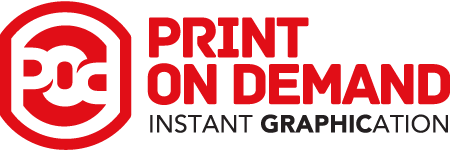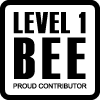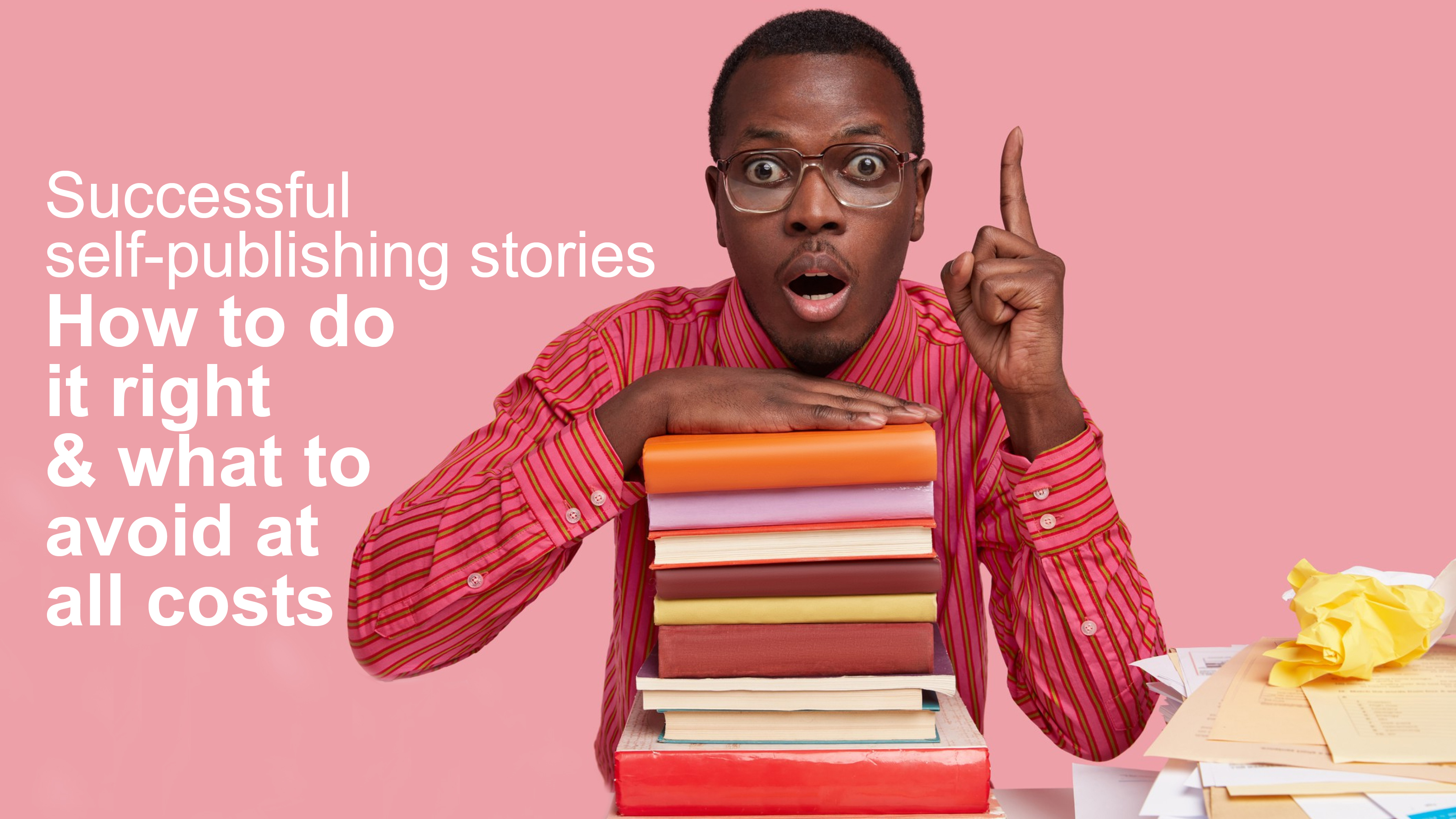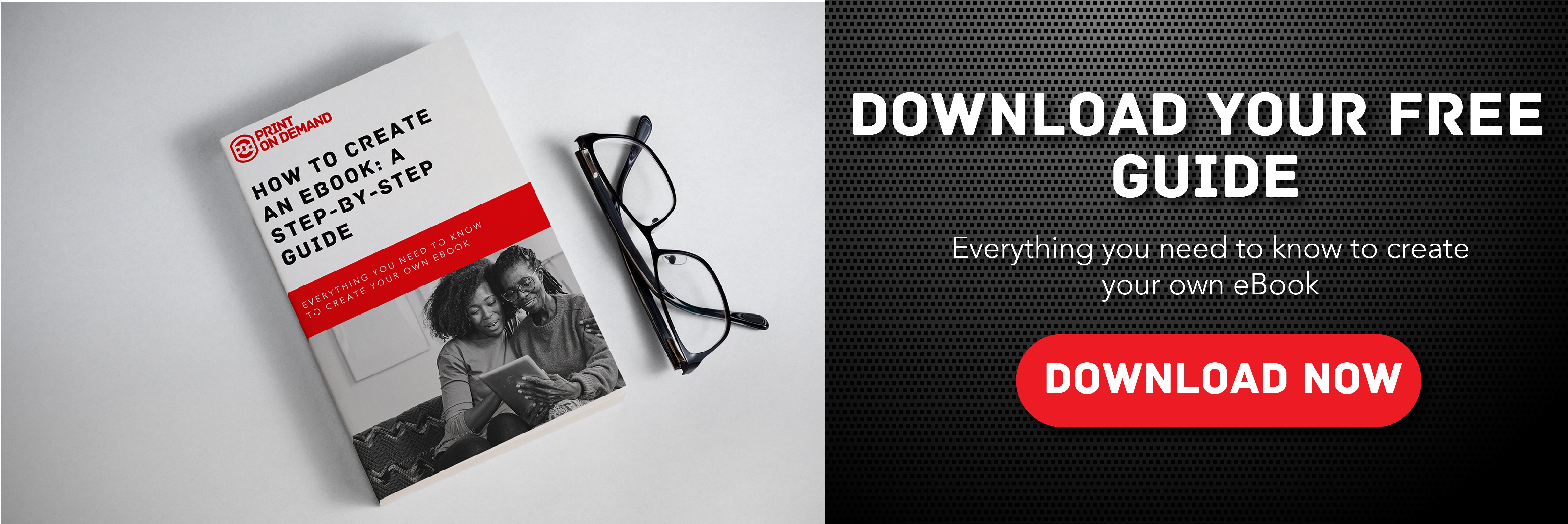Successful self-publishing stories - How to do it right & what to avoid at all cost
Anybody who has ever self-published a book knows that it’s more difficult than it looks. The opportunities for self-publishing success seem almost limitless these days, but why is it that some self-published authors have sold millions of books while others spend thousands of rands and only manage to sell 12 copies — mostly to friends, family and acquaintances?
Amazon’s 2019 review of Kindle book sales says that “Thousands of independent authors who self-publish their books with Kindle Direct Publishing (KDP) earned more than $50 000 from the sale of their books on Amazon, with more than a thousand passing $100 000 in royalties”.
What is an ambitious self-publisher to do? It all comes down to this: take charge. Anybody with an internet connection can write an ebook and make it available to hundreds of millions of readers — pretty much for free.
The real challenge is to make these books bestsellers without the marketing power of a top publisher. However, many writers have risen to this challenge with the help of modern methods and social media.
So, if you’re in two minds about going the independent self-publishing route and need some advice and motivation before you decide, here are three self-publishing success stories to share with you.
Though the obstacles they faced were different, each of these authors took their writing career into their own hands - and it paid off. And all without waiting for years and wading through mounds of rejections from traditional publishers.
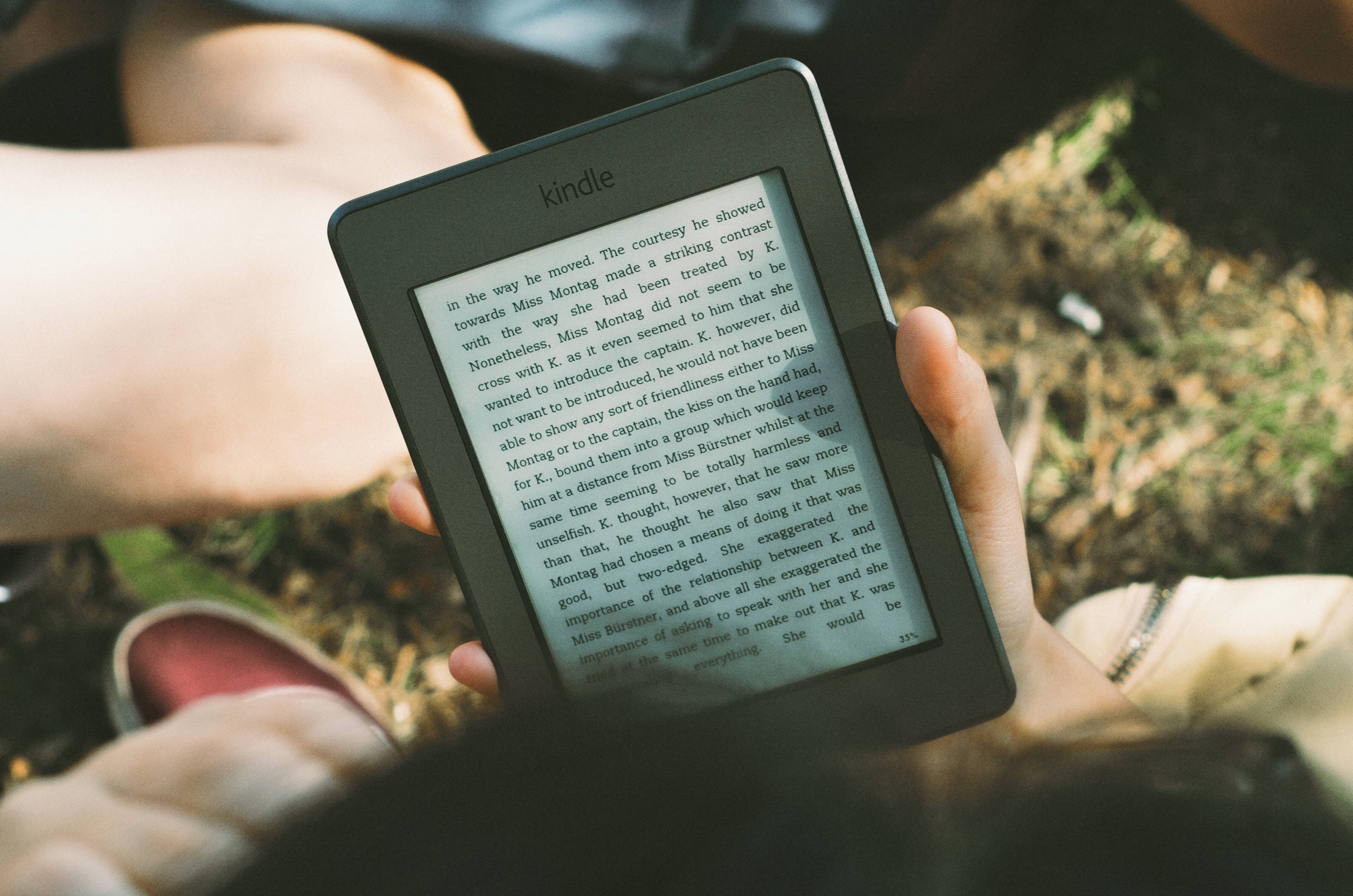
An Amazon #1 bestseller
Mark Dawson is a self-published author that Amazon likes to show off. He became an entrepreneur when he didn’t have a choice. And the methods he used to become successful aren’t difficult, just clever.
Dawson has sold over 300 000 copies of his self-published series about an assassin called John Milton.
After publishing his first book the traditional way he was disillusioned. It just didn’t move off the bookstore shelves. He even resorted to visiting bookstores where his book was on sale and moving it to a better position, in the hope it would be more visible.
It wasn’t until a friend pointed him in the direction of Amazon’s Kindle Direct Publishing that he decided to try and self-publish a second book. But this also didn’t go as well as hoped. Very few were downloaded, and it looked like it was on its way to being forgotten like the thousands of other books in Amazon’s mammoth online store.
So Dawson tried something different. He gave the book away for free. Amazon recommends this as a promotional tool, and it’s one that many try. For most writers the idea of giving away your hard-earned words for free is just unacceptable. But contrary to popular belief, Dawson’s book was downloaded more than 50 000 times over one weekend!
It was at this point that Dawson went from being a simple author to an entrepreneur and started writing the series about John Milton, the assassin. Since he started the series in June 2013, he has written 23 books in the series, become an Amazon #1 bestseller and sold more than half a million copies. He has also written another five series, all bestsellers.
He credits his success to dedication, keeping his fans engaged and busy with lots of new material, and his unusual attitude towards publishing. He approaches it like a business, in which writing is just a single cog in the media machine. He responds to all fan messages and focuses on building a rapport to ensure their loyalty. He hosts seminars to give other writers advice and guidance. And he collects names and email addresses to publicise his new work. He has built a loyal community that translates into guaranteed sales. Dawson also says Facebook advertising works the best, doubling his return on what he invests in the advertising.
He’s done what he could never do with a traditional publisher because he can exercise complete control over the entire process.
Quit your day job!
Lindsay Buroker’s first book in her Emperor’s Edge series sat on her computer half-written for years. Then, inspired by some of the publishing stories she heard, and by some of her writing friends, she finally completed it. But when she was finished, she had no idea what to do with it.
However, she bought a Kindle and it introduced her to an entire world of self-published works. She learned from thousands of other writers who self-published and started making four figures a month in book royalties; and decided to self-publish herself. In a single year, she published four ebooks and was able to move away from her day job and write full-time.
In the news today… the article is really about why I chose to publish independently, a bit of a snapshot of my journey, for anybody who is interested ☺️ https://t.co/dTm8lTgLge
— L J Ross (@LJRossAuthor) September 19, 2021
Queen of Kindle
UK author Louise Ross (the author behind the pen name LJ Ross) was working as a lawyer in London at the time she wrote her first hugely successful crime thriller series, DCI Ryan. Now, five years later, her self-published books have sold over 5.5 million copies worldwide, and 18 of her novels have hit the #1 spot in bestseller lists.
A long-time user of Amazon’s KDP platform, Ross says that she loves all of self-publishing, “right down to the granular elements”. She’s been called ‘the Queen of Kindle’ for her e-book sales success by the Sunday Telegraph, ‘the next J.K Rowling’ by the Daily Mail and was the first self-published author to be shortlisted for the British Book Awards. And she did it all herself.
The do’s of self-publishing
You should self-publish your book if:
- You like having the final say
- You like controlling the publication process
- You want a bigger cut of the royalties
- You have an audience ready to buy your book
1. Do research on your target market
Before you even think about writing your book, you should do research on your target market. Your choice of target market can mean the difference between success and failure. Your target market choice is also a way for you to make your book marketing strategy more focused and efficient. All in all, knowing your target market will make the book marketing process so much easier.
2. Do prepare a budget
Before you self-publish you should make a budget for every aspect of the self-publishing process.
3. Do create an audience before your book launches
Why should you create a Facebook group for your book or chat with other authors about review exchanges when you don’t even have a book out? One word: anticipation. This is all about marketing and what really drives your book’s success.
4. Do find the best editor
You’ve got your audience, and now you’ve finished your book, but it’s not ready to go up online yet. You need a professional editor. This process can take many months, but it’s worth the wait. It’s better to have someone go slow so they can catch all the errors.
5. Do get beta readers to preview your book
Beta readers are the people you find to preview a finished work. They focus on your plot, find any issues with it, tell you if it works or doesn’t work, and whether they’d actually read your book or not.
6. Do use a cover designer
Your cover isn’t just for your novel, it’s a marketing tactic. The cover pulls in readers, so don’t treat it like an afterthought! The cover makes the reader choose your book over the others. A reader should be able to see your book and know by a single glance what genre it is and its tone.
7. Do pay attention to formatting
Formatting your text can make your book stand apart. If your margins are wrong, your font is too squashed or small, readers won’t like it. You could have the best-edited story with the best cover, but people won’t want to read your book if your formatting is awkward and difficult on the eye.
8. Do build your website and social media personas
You should create all your social media accounts and your website before you hit the publish button. This is also a great time to think about whether you’ll be publishing under your own name or a pen name. Social media such as Facebook, Twitter, LinkedIn, Instagram, Pinterest, and Goodreads will all take time to set up. Try to promote your theme or branding across all platforms so that your brand flows across different platforms and makes you recognizable.
9. Do even more marketing
Engage with your followers and create interesting blogs about your book. Also, try doing interviews and book tours.
10. Do use reviewers
Reviews help legitimize your book. They give readers who’ve never met you an idea of what they can expect with your book. Plus, more reviewers equals higher-visibility based on popularity algorithms.

The don’ts of self-publishing
1. Don’t reuse an ISBN
Your first book didn’t sell that many copies, and now you’re self-publishing your second. Why not just move that old ISBN (International Standard Book Number) over to the new book and save a few bucks? Don’t do it - remember each book and title needs to be registered with the National Library of South Africa and each book must have its own unique ISBN.
2. Don’t handle editing yourself
Of course, you should re-read your book, make changes, look for mistakes and fact-check. You probably won’t catch everything, though; plus, you already know what you meant when you wrote the draft, so your mind is prone to “fill in the blanks” without realizing it.
3. Don’t let your doubts deter you from self-publishing
Self-publishing a book is a daunting prospect for any writer. And the longer the self-publishing process goes, the more challenges will arise. The more difficult things get, the easier it is to doubt your abilities. It is important that you have a strong belief in yourself early on. Steel yourself against these challenges and keep reminding yourself that these challenges are nothing new.
They are merely a part of being a self-published author and you can overcome them. A strong foundation and unyielding self-belief is a must for self-publishing writers.
4. Don’t use social media to send out ‘buy my book’ messages
Rather be conversational and share links to material of interest to your target market. Aim to be seen as an expert in your field, this is particularly important if writing non-fiction.
5. Don’t forget to thank people
That includes your readers for buying your book and journalists for featuring or interviewing you.
7. Don’t forget to market your book
Marketing your book is as much work as writing it, so give yourself time to do your book justice. Then you need to start writing the next one!
